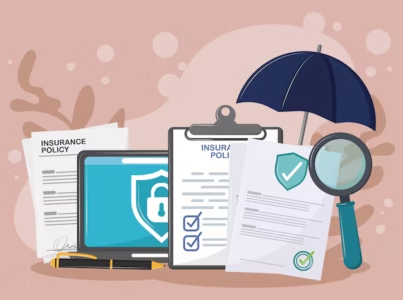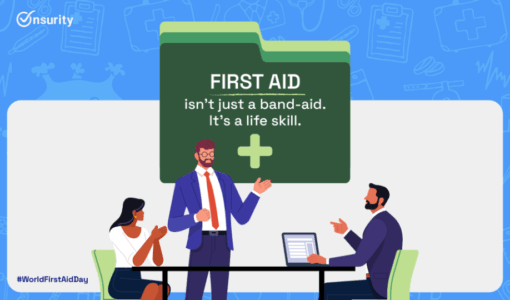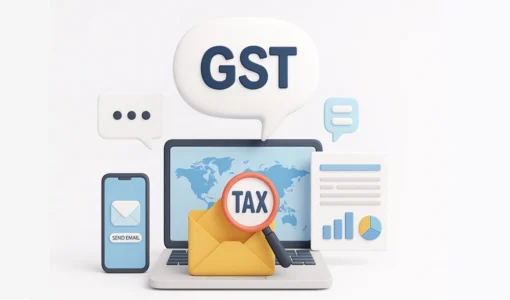Table of Contents
What comes to your mind when you think of addiction? For most, it’s drug and alcohol abuse. And statistically speaking, the two are by far the most misused substances. However, in the high-rise office buildings, behind spreadsheets and screens, hides a deeper struggle. A struggle that’s going unnoticed and unchecked.
Between juggling personal life, fitness, mental wellness, and work, Indian employees have more on their plates than they can chew. This not only puts them at a high risk of burnout but also exposes them to other unhealthy coping mechanisms. And these vices don’t always come in the form of alcohol and drugs. In some cases, it is the anti-anxiety pills that one takes for stress relief or the compulsive and mindless binging one does to pause without a thought. Due to the less perceived nature of the risk involved in forming such habits, people tend to ignore the early signs. However, letting them take root can have dire consequences.
And while India Inc. quietly struggles, a coping mechanism slowly but surely takes shape of an addiction. So, this blog is not a jab or a judgment at addiction, but rather an attempt to understand it better and perhaps start a much needed conversation that can help someone.
Understanding Addiction From The Corporate Lens
In a scientific context, addiction is a chronic disorder that leads to compulsive drug abuse despite harmful consequences. It is considered a brain disorder because it involves functional changes to brain circuits involved in reward, stress, and self-control.
The person who suffers from addiction experiences a considerable alteration in the brain chemistry, particularly in dopamine regulation and stress response. However, this doesn’t happen overnight. It is a slow and gradual shift that happens over a prolonged period of exposure to addictive habits. People often keep it hidden, specially in professional circles but eventually it starts impacting their productivity and career growth.
Additionally, this cycle of addiction is difficult to break because of the never-ending loop of stress. When an individual feels undue pressure or stress, they instinctively seek motivation to carry on, and that can come in the form of a drink or two after work, or obsessive work routine, or binging on food. But once the tolerance builds and it starts to feel less rewarding, the person can develop the need to pursue stronger stimuli, like drugs. And thus continues the cycle of abuse.
Why Indian Working Class Is A High-Risk Group For Addiction?
With the lines getting blurred between work and personal life, specially since the pandemic (which bolstered the online and offline connectivity and performance-driven culture), the digital fatigue has become the norm. Here are some more reasons why the Indian workforce is at high risk:
1. Chronic Stress and Burnout
According to a Deloitte survey in 2022, 80% of Indian professionals have experienced burnout due to a lack of workplace mental health support and an increasingly competitive job landscape. A direct correlation between chronic stress and maladaptive coping mechanisms like digital escapism or substance use has been explored in several research papers and scientific studies.
Read more: 10 Best Ways To Improve Mental Health At Workplace
2. Workplace Culture of Silence
In many corporate spaces, the taboo and lack of support around mental health still prevent individuals from seeking help. Specially for mid to senior-level employees, it is perceived as a weakness. In such spaces, vulnerability can feel like a liability.
3. Alcohol as a Social Norm
Alcohol plays a crucial role in urban social settings. Be it a post-work drink or team outings, regular consumption becomes socially acceptable, even if it’s masking deeper struggles.
4. Technology Overuse
Digital-first workspaces where laptops and smartphones are indispensable promote a compulsive usage of technology. It occasionally translates to doom scrolling on phone screens or binging TV shows in non-work hours. Internet addiction has seen a twofold growth over a period of two years, according to AIIMS.
What the Data Tells Us?
While there is no precise way to measure addiction due to stigma and underreporting, here are some related data points that paint a concerning picture:
- According to a NIMHANS survey, 10.6% of adults suffer from mental disorders (including substance use disorder), and out of this, 70% to 92% of people do not receive adequate treatment due to a lack of awareness, stigma, and shortage of medical professionals.
- According to a survey conducted by Ministry of Social Justice and Empowerment of India, among all the psychoactive substances, alcohol is the most commonly abused substance, with 14.6% social users, 5.2% core problem users, and 2.7% core dependent users.
- Tobacco use remains a prevalent form of nicotine addiction, with an estimated 267 million adults (29% of the adult population in India) using tobacco. The country faces a huge burden of communicable and non-communicable diseases from tobacco use.
- The nonmedical use of prescription drugs in India, particularly in metro cities like Bengaluru is a growing concern.
These numbers are a mere tip of the iceberg. And the substance use crisis in India is far more dire than what meets the eye. Addiction in its many forms is still not accounted for and therefore should be taken as a public health issue.
How To Recognise The Early Signs Of Addiction?
Addiction does not manifest dramatically. It is slow and sneaky! If you or someone you know shows these early signs, then consult your general practitioner or a mental health professional at the earliest:
- You are heavily reliant on alcohol or pills to fall asleep
- When being without a device or not being online irritates you
- You depend on caffeine or stimulants to stay focused
- You work obsessively to avoid confronting emotional distress
- You make promises to cut back, but often don’t follow through
While these signs may not seem immediately disruptive to your day-to-day life, they can slowly chip away at your mental health. A prolonged period of ignoring these signs can begin to affect your work, relationships, health, and self-worth.
How Stigma Can Prevent You From Seeking Help?
In India, mental health and associated disorders are still considered taboo or an uncomfortable topic to bring up in conversations. Specially in spaces where there is a greater emphasis on appearance, acknowledging your struggle with addiction can be extremely difficult and can prevent you from seeking help.
If you’re wondering whether to seek help, here’s something to remember: You don’t need to hit rock bottom to start recovering.
There are many paths to healing, and exploring them doesn’t require you to compromise on your work and personal life.
How To Seek Help?
1. Talk to a Therapist
Qualified psychologists can help you understand the “why” behind your behavior and offer healthier coping mechanisms. Platforms like MindPeers, InnerHour, YourDOST, and BetterLyf offer discreet, accessible therapy—sometimes even via chat.
2. Reach Out to Support Groups
Groups like Alcoholics Anonymous (AA) and Narcotics Anonymous (NA) are active in most major Indian cities and online. Even if you don’t identify fully with their model, listening to others’ stories can help you feel less alone.
3. Check for Corporate Mental Health Support
Some Indian startups and MNCs now offer mental health support to employees that includes therapy sessions, helplines, and wellness coaches. You might be eligible without even knowing it.
4. Explore Rehabilitation Options (If Needed)
If things feel beyond your control, inpatient care can be a reset. Reputable centers like Cadabams, Tulasi Healthcare, and Veda Rehab provide professional care in confidential environments tailored for working adults.
5. Use Helplines in Crisis
- iCall (TISS): +91 9152987821
- Fortis Stress Helpline: +91 8376804102
- Vandrevala Foundation: 9999 666 555
Conclusion: Thriving Not Surviving At Work
Addiction is a complex yet prevalent issue that none of us is immune to. But we are all strong enough to brave it and get past it. If you or someone you know is struggling, make room for conversations, empower yourself and others with the right tools and mindset.
Waiting till the last straw can make recovery extremely difficult, which is why being proactive about your well-being is the first step in ensuring you do not fall into the cycle of substance abuse. Set boundaries at work, get plenty of rest, and practice mindfulness. Know when to pause instead of powering through. Treat your mental health with the same urgency as your work. Create time blocks in your daily routine where you can go device-free. Remember: the idea is not to survive but to thrive!
India’s biggest struggle with mental health is the stigma. Therefore, hold space for yourself and others that is a safe space without judgment. Check in without assumptions or premonitions, and speak up without reservations. When you create an ecosystem where everyone feels safe, they might just feel comfortable enough to seek help.
If you or your dependent family member is in immediate need of medical assistance, then your Onsurity membership offers a free doctor’s consultation. You can log in to your Onsurity Super App to get a free teleconsultation.







